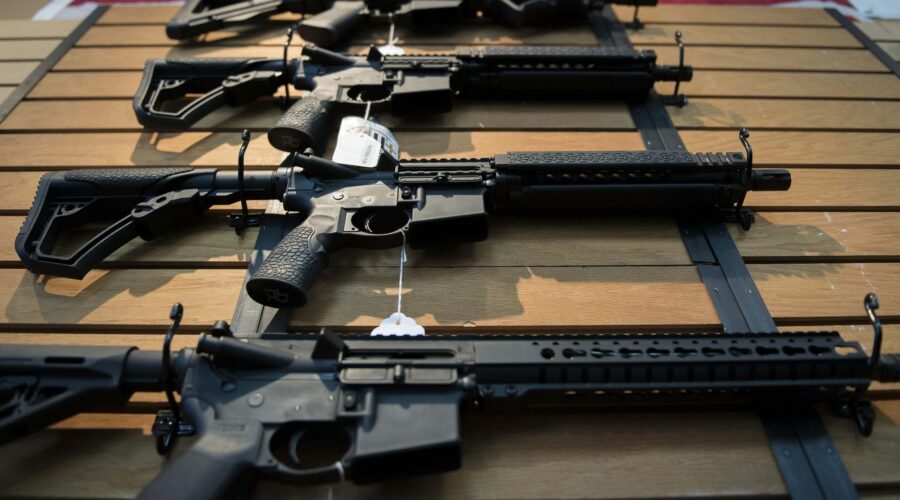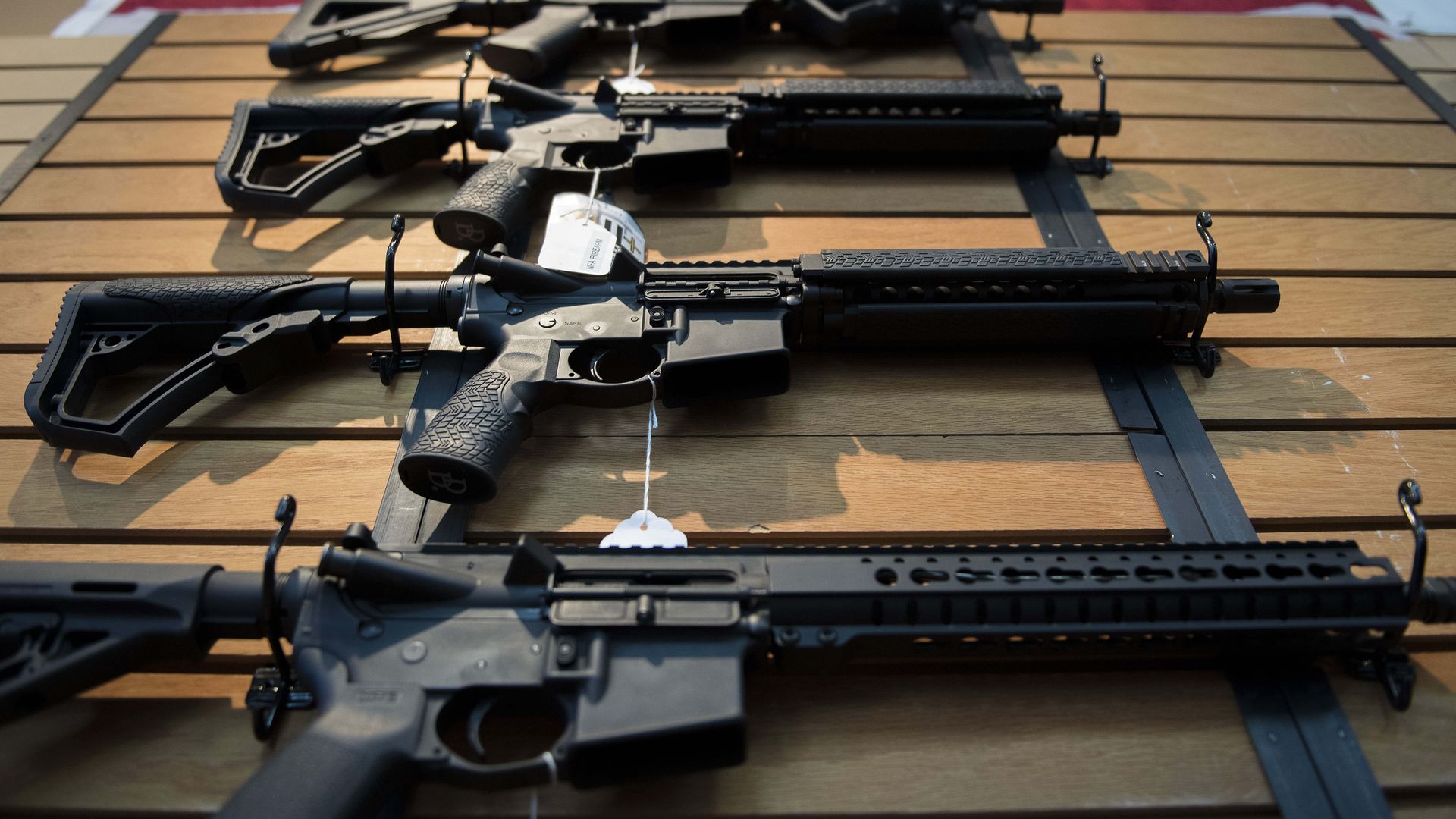Everything you need to know about a federal assault weapons ban
Photo: Jim Watson/AFP via Getty Images
President Biden called on Congress to reinstate an assault weapons ban during his primetime speech to the nation Thursday in which he outlined his gun control agenda.
Why it matters: The previous federal assault weapons ban lasted for 10 years before it was allowed to expire, but it has often come up in discussions over gun control.
What was the federal assault weapons ban?
Details: The assault weapons ban was passed in 1994 after a series of shootings in Stockton, California, and on 101 California Street in 1993.
- Sen. Dianne Feinstein (D-Calif.) authored the original version of the bill, which passed the Senate in 1993 and was signed into law by then-President Clinton in 1994.
- It was passed with a 10-year "sunset provision" in place, meaning it would automatically expire in 2004 unless it was renewed with another vote.
- The ban called for a federal criminal code "to prohibit the manufacture, transfer, or possession of a semiautomatic assault weapon."
- It included more than a dozen specific firearms and guns with certain features.
- The law also banned "transfer or possession" of large-capacity ammunition devices that could carry more than 10 bullets.
Yes, but: Many of the guns were still sold legally "because there are so many modifications that can be made on weapons and the fact that it did not outright ban all semiautomatic weapons," per ABC News.
Why did the federal assault weapons ban end?
The ban expired under President George W. Bush in 2004.
- Congress did not reauthorize the ban, allowing all previously-banned weapons to be legal again on Sept. 13, 2004.
- A Republican Congress decided not to renew the ban, NPR reports.
Calls to ban assault weapons
Former President Clinton called for the federal assault weapons ban to be reinstated after the deadly shootings in El Paso, Texas and Dayton, Ohio, in 2019.
- "How many more people have to die before we reinstate the assault weapons ban & the limit on high-capacity magazines & pass universal background checks?" Clinton tweeted at the time.
- "After they passed in 1994, there was a big drop in mass shooting deaths. When the ban expired, they rose again. We must act now," he said.
Feinstein, the author of the original ban, drafted an assault weapons ban in 2013 after the shootings in Newtown, Aurora and Tucson.
President Biden called on Congress to pass gun control legislation after shootings in Boulder and Atlanta back in March 2021.
- Two House-approved bills at the time looked to expand background checks and bans on assault weapons.
After the shooting at Sandy Hook Elementary School in 2012, Congress proposed a bipartisan bill that would have expanded background checks and added a ban on assault weapons and high-capacity gun magazines, Axios' Erin Doherty writes.
Go deeper: Failed gun legislation is the norm after mass shootings
Source: Read Full Article


